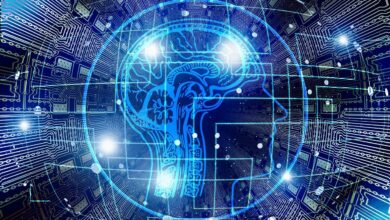The Role of Ethical Frameworks in Guiding AI Development.

In the ever-evolving landscape of artificial intelligence (AI), ethical considerations have become paramount. Ethical frameworks play a pivotal role in guiding AI development, ensuring that these powerful technologies are harnessed for the benefit of humanity while minimizing potential harm.
Ethical frameworks serve as guiding principles that help AI developers and organizations navigate the complex terrain of AI research, design, and deployment. They set forth a moral compass, delineating what is acceptable and what is not in the development and use of AI systems. These frameworks encompass a range of critical issues, such as fairness, transparency, accountability, privacy, and bias mitigation.
One fundamental aspect of ethical AI frameworks is fairness. Ensuring that AI systems treat all individuals equitably, regardless of their race, gender, or other attributes, is a top priority. Ethical guidelines advocate for the elimination of biases in data, algorithms, and decision-making processes to prevent discriminatory outcomes.
Transparency and accountability are also key components. Developers are encouraged to make AI systems understandable and explainable to users, ensuring that individuals can comprehend the basis for AI-generated decisions. Furthermore, frameworks emphasize the need for developers to take responsibility for the AI systems they create, making it clear who is accountable when issues arise.
Privacy considerations are another critical dimension of ethical AI frameworks. Protecting individuals’ personal information and ensuring that AI applications do not infringe upon their rights is a cornerstone of ethical development. This includes obtaining informed consent when collecting data and safeguarding sensitive information.
Bias mitigation, an ongoing challenge in AI development, is addressed through these ethical frameworks. Developers are urged to continuously assess and mitigate biases in AI systems to prevent discriminatory outcomes and unequal treatment.
In summary, ethical frameworks are indispensable in shaping the future of AI technology. They provide a roadmap for developers, organizations, and policymakers, offering guidance on how to harness the potential of AI while upholding ethical principles. As AI continues to advance, these frameworks will remain crucial in promoting responsible AI innovation and ensuring that AI benefits society as a whole.



